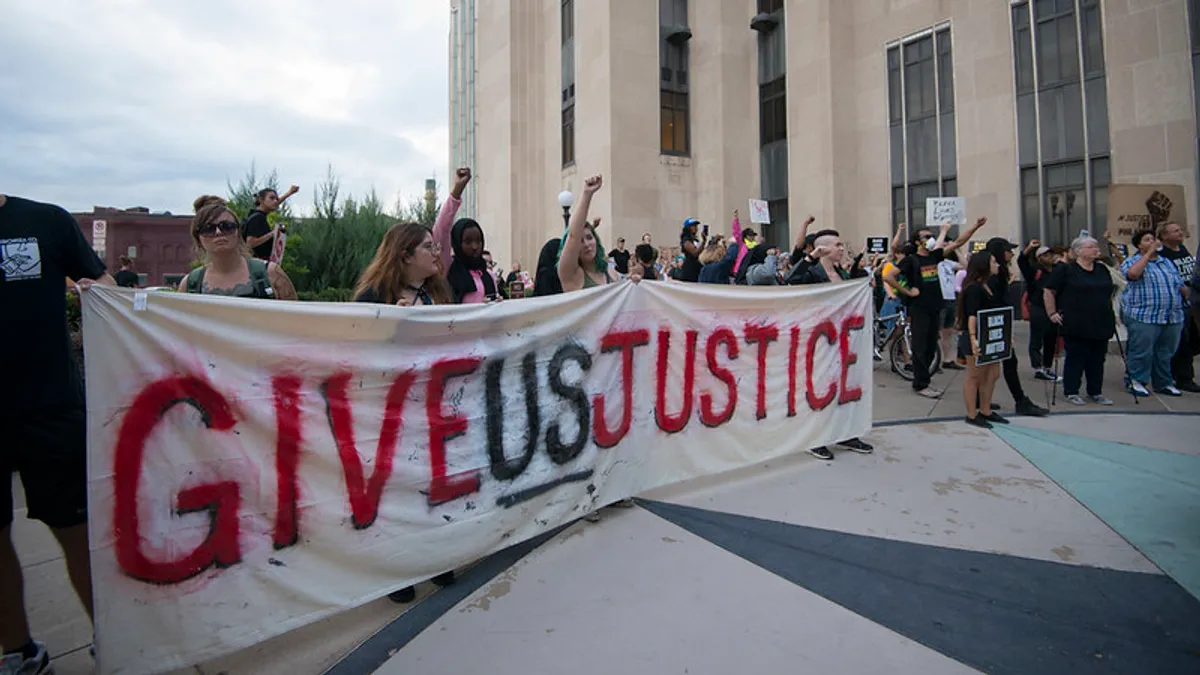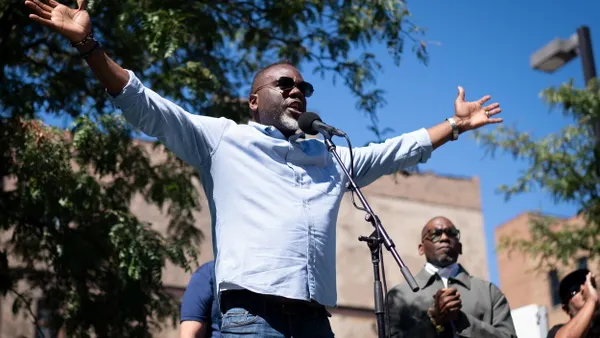Dive Brief:
- The Saint Paul, MN City Council passed a resolution Wednesday in a 7-0 vote, calling for the creation of a reparations commission to help the city address equity and wealth disparities faced by the city’s Black residents.
- St. Paul's reparation efforts are inspired by similar endeavors in Evanston, IL and Asheville, NC, according to the announcement, which call for a range of investments in areas where Black residents experience inequities like housing and education.
- The commission will be responsible for exploring different reparation opportunities, including potential investments into mental health, education and housing, in addition to addressing police brutality, according to Saint Paul Recovery Act and Reparations Steering Committee Co-Chair Trahern Crews.
Dive Insight:
The resolution is the latest in an ongoing response to the police killing of George Floyd in neighboring Minneapolis, which sparked nationwide demonstrations and calls for racial justice across the country.
"At the age of eight, George Floyd's great-grandfather Hillary Thomas Stewart, who was a slave, got his freedom. As an adult, he had amassed 500 acres of land. However, White farmers stole it from him and his family, denying his offspring the benefits of generational wealth," Crews said in a statement. "This has happened to many Black families whose ancestors descend from American chattel slavery and now it is time for bold reparatory justice policies that will address these historical injustices."
Racial inequity in Minneapolis is among the worst in the nation. The median Black family income was $36,000 in 2018 compared to the almost $83,000 salary of a White family, The Washington Post reports. The city is also home to one of the lowest rates of Black home ownership, with about one-quarter of Black families owning their homes.
St. Paul's reparation efforts aim to address some of these disparities with a combination of short-term and long-term strategies, according to Crews.
One short-term strategy could be to immediately address issues stemming from the pandemic, Crews said, which has disproportionately impacted Black communities in cities across the country. The pandemic has exacerbated the city's existing education gap for Black students, and a lot of Black children are falling through the cracks, he said.
The commission will explore reparations through a lens of health, wellness and healing for Black families and communities, according to Crews.
"We need to start identifying posttraumatic slavery syndrome and to do that, we need doctors, psychologists and social workers who are trained in understanding that," he said. The group will likely explore ways to address mental health and gun violence issues through a reparatory-justice lens, according to Crews.
The commission will also explore funding opportunities through the sale of cotton, tobacco, and "anything that the slaves hand’s touched," he said. The money could be distributed to a fund for housing programs that are specifically targeted to the American descendants of slavery, according to Crews.
"This is our opportunity to make a really fresh start on racial healing and investments that will ultimately eliminate disparity," City Councilmember Jane Prince said.
Evanston, IL is one city that gained national attention for its own reparation efforts, beginning in 2019. The Chicago-suburb's Empowerment Commission could be the first such program to address the impact of slavery on its Black residents with funding from the city's marijuana tax, which became legal in Illinois in 2020.
The fund is capped at $10 million, and sales tax from the city’s recreational marijuana sales could produce up to $750,000 each year. With that funding, the city has plans to potentially build a new STEM school in a historically Black city ward, and provide a series of $25,000 grants for "Black victims of housing discrimination," the Pioneer Press reports.
Asheville, NC's city council also adopted a resolution in July that apologizes for the city's role in slavery and racist policies, calling for investments in areas where Black residents experience inequities, CNN reports. And in Providence, RI, Mayor Jorge Elorza signed an executive order in July to begin pursuing potential reparation plans, the Providence Journal reports.













